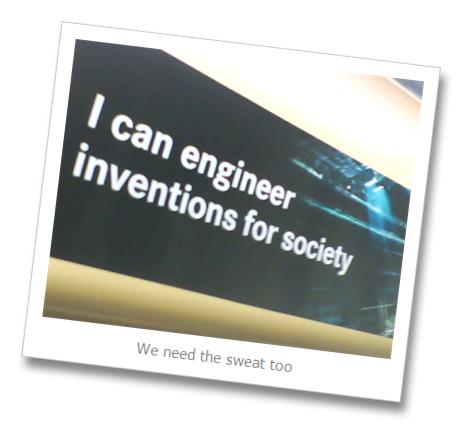I didn't know that inventions could be engineered. If it could, then Singapore should have thousands of inventions to its name, given that it produced that many engineers in the 80s and 90s, most of whom have become paper-pushing administrators today. Singapore does not hold that accolade. I believe the US does. Ironically, it is adopting Singapore-produced textbooks for some of its schools today. Singapore is now scrambling to produce R&D people, people who could come up with inventions or innovate new products through the greater emphasis and money going into its push for R&D. In typical Singapore fashion, we are going to engineer the inventions, as this signboard in an MRT train car would suggest.
But of course, give Singapore more credit. It understands the process (if it exists) and it is doing its damnest to create the environment, if not the people, to go into R&D in larger numbers today. But as with all things that comes from the top in Singapore, it is a targeted push. With the amount of money that is being poured into this push, I am sure inspiration will come. However, as Edison would remind us, it takes a lot of sweat too.

"it is adopting Singapore-produced textbooks for some of its schools today"
ReplyDeleteErrr...I have seen this in so many places in Singapore. It must be some source of pride. But I was under the impression that it was just one or two books that were added to the list of approved books in California. In the US, individual schools choose their own books from a huge list of approved ones. So I'm quite curious to know, out of tens of thousands of school districts in the US, how many of them are actually using a Singapore book?
Invention is a process of two main factors. One is the free marketplace of ideas. The other is a group of bizarre, fanatically-driven egomaniacs who have the persistence to drive a ship until it nearly sinks (but also the mental agility to recognize a sinking ship and bail out before it does).
ReplyDeleteUntil both such factors reach a critical mass, our invention rate will only increase slowly. The US certainly does better now because it is much larger and has at least a 150-year head start.
Thomas Edison sweats but so does a hundred million factory workers. Sweat is not the deciding factor in this realm.